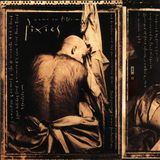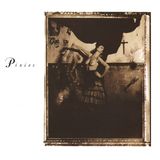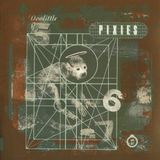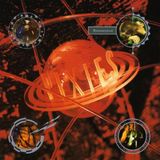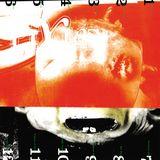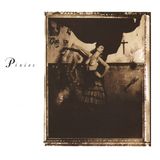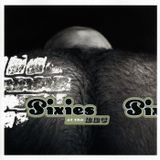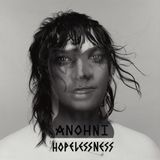Chapter 1
The Sound
Pixies
By the time triple j's Tim Ritchie got a chance to speak to Pixies in 1989, they were already monumental indie rock stars. They'd only been together for a couple of years, but they'd already released a buzz-inducing EP and two amazing albums.
Given the influence they've had on alternative music over the past three decades, it's hard to believe that much of the hype surrounding Pixies was due to the fact that no one else really sounded anything like them. But, as frontman Black Francis told Ritchie, that wasn't by design.
We just start making noise until it sounds good. If we start thinking about it, it'll be like everyone else and get bland.
Black Francis
“We don't think about things too much, we just want to make cool rock tunes,” he said.
“We don't want to make a niche or worry about press or worry about who's gonna like it or who's gonna dislike it.
“When you go into a recording studio, you don't say ‘Well, what are we gonna do now?'. We just start making noise until it sounds very good or until we think it sounds good.
"I think if we start thinking about it, it'll be like everyone else and get bland or whatever.”
But the band's now famous use of volume – and lack thereof – was deliberate from the outset.
“We use basic dynamics,” Francis said. “We play loud and play quiet. Anything to get attention. Anything to not be boring. Anything not to be overly complicated.”
If you've ever given any thought to what Francis' writing process might entail, have a long think about reading this next paragraph. His favourite place to write, at least in 1989, was a little unorthodox.
“The best way to write a song is in the bathroom in front of a mirror,” he said. “I just do it out of habit. I spend a lot of time in the bathroom playing the guitar and inevitably there's always a mirror in there. So I've sort of gotten used to the mirror thing and grown to need it.”
Pixies wanted peoples' reactions to their music to be, at its core, fairly primal. The same kind of reaction that kids have when they hear their favourite songs and before they have a mind to intellectualise exactly what it is they are hearing.
“When you start listening to records when you're real young, you don't sit around and analyse it – you just go ‘Wow, that's a really great tune',” Francis said.
But he also said he doesn't mind if people want to read more into their music than might have ever been there in the first place.
“No, not at all. I don't mind. I sit around and analyse stuff in my own head or with friends. But with us there's not a lot to say. We like rock music and that's it.”
Chapter 2
The Songs
Pixies
Have you ever wondered what the hell Black Francis is yelling about? You're not the only one. And it turns out the confusion is justified.
“The words are a little vague sometimes,” he said. “They all have meaning, but there's not really any topics. There's song structure and basic poetic structure. Accents, non-accents, rhyme schemes and rhythms and everything. There's more of that then there is actual content.
“I fill in the spaces and at the end you'll have meaning. If you take 100 words and randomly put them together, you'll come up with something nine times out of ten.
“The Dada way to watch a movie would be to walk into the theatre 20 minutes into the movie, get up after 20 minutes and go to another movie. You definitely see real things in their real context, you just don't see the beginning, the middle and the end. It still has meaning. It still has anthropological value. You can still figure stuff out.”
Debaser
This song famously references Un Chien Andalou, the 1928 surrealist film directed by Luis Buñuel and co-written by Salvador Dali. While Francis acknowledged the influence, he urged people not to read too much into it.
“If you watch a movie then you have a vocabulary from the movie, at least from the images,” he said. “Especially a silent movie like that. You watch the movie, you see a bunch of images, so you just repeat the images.
“It's a short movie, it's silent and the images are really famous.
“[Debaser's] not about the movie or anything, because the movie itself isn't about anything. I just needed some words to fill the space, you know?
“But that actually ties in with the spirit of the movie. The movie's like that too, it's an old Dadaist, surrealist movie. It doesn't really have a lot of meaning, it's sort of absurd. So if you write a song about the movie, you don't really analyse the movie, you just become absurd and brief and more abstract.”
Monkey Gone To Heaven
The environmental themes of ‘Monkey Gone To Heaven', another of Pixies biggest ever songs, have seen some people label it as a strange kind of protest song.
While Francis acknowledged the environmental themes (‘Killed by ten million pounds of sludge', ‘Now there's a whole in the sky; And the ground's not cold') he again doesn't want people reading too much into it.
“The ‘Monkey Gone To Heaven' phrase is meaningless, but some of the other lyrics mention some ecological topics like ozone or deep ocean pollution. But it's not real political or anything, it's just stuff to sing about.
“I like to sing about sky and moon and ocean, because they're ancient mythological places and people relate to it in a poetic and romantic kind of way. Even when you talk about ozone pollution or ocean pollution, those are classic places and everybody relates to them.
“You talk about trash in the street and it's not real romantic. But the sky is romantic and the sea is romantic. So I really just mentioned it in that attitude.”
Chapter 3
The Attitude
Pixies
Even in these early years of the band, Pixies were fully aware of, and even seemed comfortable with, the balance between art and commerce that they would have to contend with.
“You gotta get paid so you can buy stuff,” Francis said. “You gotta get paid or you gotta do a lot of farming in your backyard.”
As music fans, Pixies were also aware of the relationship between artist and audience and had no delusions about changing that relationship.
“You know when you go and see your favourite performer, you want something out of them. You want them to make you feel great.
“I think most people my age and older who've grown up listening to rock records have this romantic concept about rock'n'roll. You know, kids with guitars and nightclubs and jumping around and stuff.
“Everybody in the western world today has a romantic concept of rock'n'roll. They all know what Elvis looks like, and Chuck Berry and ‘Blue Suede Shoes' and The Who smashing their guitars.
"They're the classic ones, but you could talk about the Butthole Surfers doing really gross stuff onstage and for their particular audience that's very romantic, to get up and set off 1,000 firecrackers or show films of autopsies. That's romantic to people, it's cool.”
The band's attitude towards becoming a success was as simple as the ideas and methods behind writing their songs.
“You've got to have really cool tunes. That's the number one thing,” Francis said.
“You have to make people feel excited to be in the place that they are and excited about their purchase. That's the basic relationship, there's no bullshit. That's what it's all about. People pay a price and you give them something in return.”
"Whether I'm in a band or not, I want to make a stack of records..."
Black Francis
But Kim Deal chimed in to clarify that success doesn't necessarily have to correlate with record sales.
“There are people all around that have acoustic guitars in their living rooms, their friends come over and they play music and it's very important to them. That's good,” she said.
“Music is not necessarily linked with merchandising. But when you are actually with a record company then it is. The minute anybody signs a record contract, they sell out.”
Pixies are a hugely successful band, certainly by indie rock standards.
But they never had so much hype behind them that they risked being a mere flavour of the month. The fleeting nature of some success was something that weighed on Francis' mind as far back as 1989. His words today sound wise and even a little prophetic.
“I think the time span over which the units are shifted is important,” he began. “If you shift a million units in one year and after that you're in the bargain bins, that obviously says something about your art, if you want to call it that.
“But if you only shift 500 units or 10,000 units over a year, but you proceed to continue to do that over a decade, that says an awful lot about your records. I personally would like to sell them over a long period of time.”
After Pixies initially split up in 1993, Francis went on a record releasing rampage, and now has just shy of 20 solo records to his name. Clearly this had been an ambition for some time.
“Whether or not I'm in a band or not, I want to make a stack of records and I want people to always buy them, as long as people have the luxury of owning stereos and listening to recordings in that way,” he said.
“But I certainly don't blame people for going for the fast buck if that's the way they want to do it, I've got no problem with that. But the music isn't very good. That's why we're in this band, because we're fans of rock records.”
Pixies are fans of rock records. Maybe it really is as simple as that.

